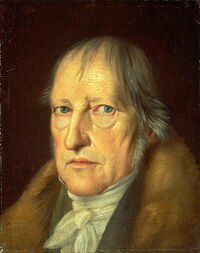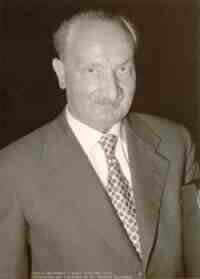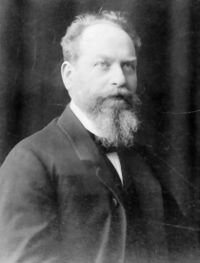Tuesday, February 22, 2011
Deconstructionism
Subjects relevant to deconstruction include the philosophy of meaning in Western thought, and the ways that meaning is constructed by Western writers, texts, and readers and understood by readers. Though Derrida himself denied deconstruction was a method or school of philosophy, or indeed anything outside of reading the text itself, the term has been used by others to describe Derrida's particular methods of textual criticism, which involved discovering, recognizing, and understanding the underlying – and unspoken and implicit—assumptions, ideas, and frameworks that form the basis for thought and belief, for example, in complicating the ordinary division made between nature and culture. Derrida's deconstruction was drawn mainly from the work of Martin Heidegger and his notion of Destruktion but also from Levinas and his ideas upon the Other.
More...
Friday, March 19, 2010
Phenomenology
 Phenomenology has at least three main meanings in philosophical history: one in the writings of Georg Wilhelm Friedrich Hegel, another in the writings of Edmund Husserl in 1920, and a third, deriving from Husserl's work, in the writings of his former research assistant Martin Heidegger in 1927.
Phenomenology has at least three main meanings in philosophical history: one in the writings of Georg Wilhelm Friedrich Hegel, another in the writings of Edmund Husserl in 1920, and a third, deriving from Husserl's work, in the writings of his former research assistant Martin Heidegger in 1927.For G.W.F. Hegel, phenomenology is an approach to philosophy that begins with an exploration of phenomena (what presents itself to us in conscious experience) as a means to finally grasp the absolute, logical, ontological and metaphysical Spirit that is behind phenomena. This has been called a "dialectical phenomenology."
For Edmund Husserl, phenomenology is "the reflective study of the essence of consciousness as experienced from the first-person point of view."
More...
Saturday, September 12, 2009
Martin Heidegger
 Martin Heidegger (September 26, 1889 – May 26, 1976) was an influential German philosopher. His best known book, Being and Time (German: Sein und Zeit, 1927), is generally considered to be one of the key philosophical works of the 20th century.
Martin Heidegger (September 26, 1889 – May 26, 1976) was an influential German philosopher. His best known book, Being and Time (German: Sein und Zeit, 1927), is generally considered to be one of the key philosophical works of the 20th century.Heidegger claimed that Western philosophy has, since Plato, misunderstood what it means for something to be, tending to approach this question in terms of a being, rather than asking about being itself. In other words, Heidegger believed all investigations of being have historically focused on particular entities and their properties, or have treated being itself as an entity, or substance, with properties. A more authentic analytic of being would, for Heidegger, investigate "that on the basis of which beings are already understood," or that which underlies all particular entities and allows them to show up as entities in the first place.
But since philosophers and scientists have overlooked the more basic, pre-theoretical ways of being from which their theories derive, and since they have incorrectly applied those theories universally, they have confused our understanding of being and human existence. To avoid these deep-rooted misconceptions, Heidegger believed philosophical inquiry must be conducted in a new way, through a process of retracing the steps of the history of philosophy.
Sunday, May 17, 2009
Being and Time
 Being and Time (German: Sein und Zeit, 1927) is a book by German philosopher Martin Heidegger. Although written quickly, and despite the fact that Heidegger never completed the project outlined in the introduction, it remains his most important work and has profoundly influenced 20th-century philosophy, particularly existentialism, hermeneutics and deconstruction.
Being and Time (German: Sein und Zeit, 1927) is a book by German philosopher Martin Heidegger. Although written quickly, and despite the fact that Heidegger never completed the project outlined in the introduction, it remains his most important work and has profoundly influenced 20th-century philosophy, particularly existentialism, hermeneutics and deconstruction.Being and Time was originally intended to consist of two major parts, each part consisting of three divisions. Heidegger was forced to prepare the book for publication when he had completed only the first two divisions of part one. The remaining divisions planned for Being and Time (particularly the divisions on time and being, Immanuel Kant, and Aristotle) were never published, although in many respects they are addressed in one form or another in Heidegger's other works. In terms of structure, Being and Time remains as it was when it first appeared in print; it consists of the lengthy and important two-part introduction, followed by Division One, the "Preparatory Fundamental Analysis of Dasein," and Division Two, "Dasein and Temporality."
Friday, May 16, 2008
Martin Heidegger
 Martin Heidegger (September 26, 1889 – May 26, 1976) was an influential German philosopher. His best known book, Being and Time, is generally considered to be one of the key philosophical works of the 20th century.
Martin Heidegger (September 26, 1889 – May 26, 1976) was an influential German philosopher. His best known book, Being and Time, is generally considered to be one of the key philosophical works of the 20th century.Introduction
Heidegger claimed that Western philosophy has, since Plato, misunderstood what it means for something to be, tending to approach this question in terms of a being, rather than asking about being itself. In other words, Heidegger believed all investigations of being have historically focused on particular entities and their properties, or have treated being itself as an entity, or substance, with properties. A more authentic analytic of being would, for Heidegger, investigate "that on the basis of which beings are already understood," or that which underlies all particular entities and allows them to show up as entities in the first place.But since philosophers and scientists have overlooked the more basic, pre-theoretical ways of being from which their theories derive, and since they have incorrectly applied those theories universally, they have confused our understanding of being and human existence. To avoid these deep-rooted misconceptions, Heidegger believed philosophical inquiry must be conducted in a new way, through a process of retracing the steps of the history of philosophy.
Heidegger argued that this misunderstanding, commencing from Plato, has left its traces in every stage of Western thought. All that we understand, from the way we speak to our notions of "common sense," is susceptible to error, to fundamental mistakes about the nature of being. These mistakes filter into the terms through which being is articulated in the history of philosophy—reality, logic, God, consciousness, presence, et cetera. In his later philosophy, Heidegger argues that this profoundly affects the way in which human beings relate to modern technology.
His work has exercised a deep influence on philosophy, theology and the humanities, being key to the development of existentialism, hermeneutics, deconstructionism, postmodernism, and continental philosophy in general. Heidegger's thought directly informs the works of major philosophers such as Karl Jaspers, Leo Strauss, Hans-Georg Gadamer, Jean-Paul Sartre, Emmanuel Lévinas, Hannah Arendt, Maurice Merleau-Ponty, Michel Foucault, and Jacques Derrida.
More...
Thursday, April 17, 2008
Edmund Husserl
 Edmund Gustav Albrecht Husserl (April 8, 1859 – April 26, 1938) was a philosopher, known as the father of phenomenology. His work was a break with the purely positivist orientation and understanding of the science and philosophy of his day, giving weight to subjective experience as the source of all of our knowledge of objective phenomena.
Edmund Gustav Albrecht Husserl (April 8, 1859 – April 26, 1938) was a philosopher, known as the father of phenomenology. His work was a break with the purely positivist orientation and understanding of the science and philosophy of his day, giving weight to subjective experience as the source of all of our knowledge of objective phenomena. Husserl was a pupil of Franz Brentano and Carl Stumpf; his philosophical work influenced, among others, Eugen Fink, Max Scheler, Martin Heidegger, Jean-Paul Sartre, Emmanuel Lévinas, Rudolf Carnap, Hermann Weyl, Maurice Merleau-Ponty, Pierre Bourdieu, Paul Ricœur, Jacques Derrida, Jan Patočka, Roman Ingarden, Edith Stein (St. Teresa Benedicta of the Cross), Karol Wojtyla and Dallas Willard. In 1887 Husserl converted to Christianity and joined the Lutheran Church. He taught philosophy at Halle as a tutor (Privatdozent) from 1887, then at Göttingen as professor from 1901, and at Freiburg im Breisgau from 1916 until he retired in 1928. After this, he continued his research and writing by using the library at Freiburg.
Education and early works
More...
LifeNews.com
Desiring God Blog
Youth for Christ International
related
- Follow Jesus
- Timothy Ministries News
- Dallas Willard
- Christian Resources
- Missional Church dot Org
- Between Two Worlds
- GinkWorld
- New Tribes Mission
- Prime Time Jesus
- All Things Aramaic
- Blogging the New Testament
- Campus Crusade for Christ International
- Bible.org
- Vineyard South Africa
- AnswersInGenesis
- Allelon Movement of Missional Churches
- Billy Graham
- Christian Classics Ethereal Library
- Christian answers
- Christian Worldview
- Historical Jesus Studies
- Monergism
- Christians Unite


